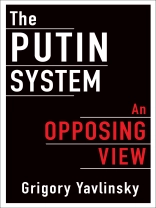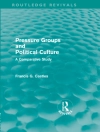A quarter century after the fall of the Soviet Union, Russia once again looms large over world affairs, from Ukraine to Syria to the 2016 U.S. election. Yet how power works in present-day Russia—how Vladimir Putin came to power and maintains his rule—remains opaque and often misunderstood. In The Putin System, Russian economist and opposition leader Grigory Yavlinsky explains his country’s politics from a unique perspective, voicing a Russian liberal critique of the post-Soviet system that is vital for the West to hear.
Combining the firsthand experience of a practicing politician with academic expertise, Yavlinsky gives unparalleled insights into the sources of Putin’s power and what might be next. He argues that Russia’s dysfunction is neither the outcome of one man’s iron-fisted rule nor a deviation from the supposedly natural development of Western-style political institutions. Instead, Russia’s peripheral position in the global economy has fundamentally shaped the regime’s domestic and foreign policy, nourishing authoritarianism while undermining its opponents. The quasi-market reforms of the 1990s, the bureaucracy’s self-perpetuating grip on power, and the Russian elite’s frustration with its secondary status have all combined to enable personalized authoritarian rule and corruption. Ultimately, Putin is as much a product of the system as its creator. In a time of sensationalism and fear, The Putin System is essential reading for anyone seeking to understand how power is wielded in Russia.
Table des matières
Preface to the English Translation
Acknowledgments
1. The Political System of Putin’s Russia and Its Significance for World Affairs
2. Russia Today: The History of How and Why It Came to Be
3. Authoritarianism on the Periphery: Understanding Russia’s Political System and How It Works
4. The Future of Autocracy in Russia: What Do We Have to Tolerate (and for How Long)?
5. In Lieu of a Conclusion
Afterword: 2018 and the Imperative for Change
Notes
Index
A propos de l’auteur
Grigory Yavlinsky is a Russian economist and politician. A proponent of market-oriented reforms under Gorbachev, Yavlinsky has been a key figure of the opposition in post-Soviet Russia with the independent liberal party Yabloko, for which he was the 2018 presidential candidate. His books include
Realeconomik: The Hidden Cause of the Great Recession (and How to Avert the Next One) (2011),
Incentives and Institutions: The Transition to a Market Economy in Russia (2000), and
500 Days: Transition to the Market (1991). He teaches at the National Research University Higher School of Economics in Moscow.












